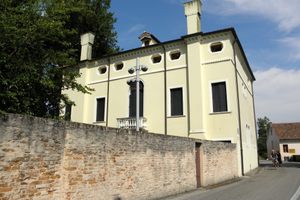Giacomo Matteotti was an Italian politician and member of the Chamber of Deputies in the early 1920s. A leader of the Italian Socialist Party, he was one of the fiercest opponents of Mussolini and his rising Fascist Party. He paid for this opposition with his life.
In late 1922, after the March on Rome, Mussolini became Italy’s Prime Minister. In the April 1924 general elections, the fascists and their allies won two-thirds of the seats in the parliament through intimidation tactics, fraud and violence. Matteotti denounced these abuses in an address to Italy’s parliament on May 30, 1924, claiming that the elections were illegitimate and should be invalidated.
On June 10, 1924, Matteotti was kidnapped and killed by a fascist squad. Five men were convicted, but they received light sentences and were released shortly after under an amnesty. Despite the public outrage, King Victor Emmanuel III refused to dismiss Mussolini from the position of prime minister, even as he was widely considered responsible for Matteotti’s death. This event marked a decisive step toward dictatorship in Italy.
Giacomo Matteotti House Museum is the house where Matteotti was born. It was built in the late 18th century and features original 1920s furniture, as well as a park. The house has now been turned into a museum that narrates the history of Matteotti, the rise to power of Mussolini, and the tragic events of 1924 through a combination of documents, photographs, and multimedia installations.
Beyond being a site of remembrance, the museum also serves as a hub for cultural events and educational workshops that promote democracy and social justice—values for which Matteotti gave his life.
